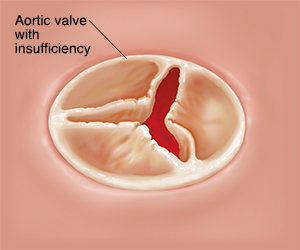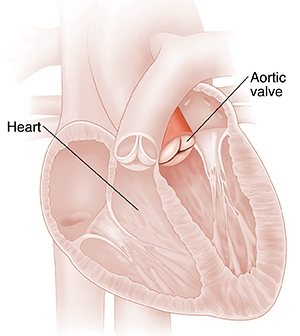Aortic insufficiency is also known as aortic valve regurgitation. It means your aortic valve has problems closing. Blood leaks back through the valve. Extra blood may cause the ventricle to stretch. A stretched ventricle doesn’t squeeze as well. In time, the heart won’t move blood the way it should.
Possible causes
Most common causes include:
-
Older age
-
Heart valve infection
-
Valve problem at birth (congenital)
-
Genetic syndromes such as Marfan syndrome
-
Inflammatory diseases
-
Injury
-
Diseases that affect the aorta itself
-
High blood pressure
There may be other causes of aortic valve insufficiency.
Treating aortic insufficiency
Your healthcare provider may prescribe medicines. These can make it easier for the heart to move your blood. To treat severe aortic insufficiency, heart valve surgery may be needed, especially if you develop symptoms.



